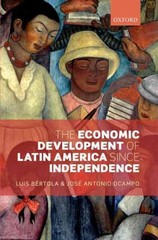Question
An article on bloomberg.com observed that a trade war could have similar effects on the economy as a supply shock resulting from a large unexpected
An article on bloomberg.com observed that a trade war could have similar effects on the economy as a supply shock resulting from a large unexpected increase in oil prices: "Say the U.S. sharply reduced trade with China and Mexico: All of a sudden, companies would be forced to scramble to adjust their supply chains, and consumers would have to deal with shortages and higher prices.
"Source: Conor Sen, "If U.S. Economy Hits Trouble, It Won't Be Like 2008,"
bloomberg.com, June 4, 2019.a.
What are "supply chains"?
A.
A supply chain is a network of firms that sell goods and services to other countries in the event of a trade war.
B.
A supply chain refers to the stock of goods that companies have produced but not yet sold to consumers.
C.
A supply chain is a network of firms that are involved in the production and sale of a good or service.
D.
A supply chain is a network of firms set up to supply goods and services to countries impacted by supply shocks.
Part 2b. Recessions in the United States are more often caused by demand shocks, such as a decrease in spending on residential housing, than by supply shocks. Compare a demand shock and a supply shock with respect to their effects on each of the following:
i. The unemployment rate
A demand shock that decreases aggregatedemand will result in a ____ unemployment rate.
A. Higher
B. Lower
ii. The inflation rate
A supply shock that decreases aggregate supply will result in a ______ inflation rate
A. Higher
B. Lower
iii. Real GDP (relative to what real GDP would have been in the absence of the shock)A
A demand shock that decreases aggregate demand will result in _____ in real GDP.
A. increase
B. decrease
Part 3c. Economists sometime argue that a supply shock presents the Fed with difficulties in implementing a countercyclical policy that a demand shock doesn't. Do you agree? Briefly explain.
A.
Yes, because unlike demand shocks, supply shocks only respond to procyclical policies, not countercyclical policies.
B.
No, because with a negative supply shock, the Fed can stimulate aggregate demand to restore both unemployment and inflation to their previous levels.
C.
Yes, because with a negative supply shock, there is no way for the Fed to adjust aggregate demand to maintain both full employment and a stable price level.
D.
No, both demand shocks and supply shocks put the Fed in an equally difficult position where it must choose between fighting inflation or fighting unemployment.
Step by Step Solution
There are 3 Steps involved in it
Step: 1

Get Instant Access to Expert-Tailored Solutions
See step-by-step solutions with expert insights and AI powered tools for academic success
Step: 2

Step: 3

Ace Your Homework with AI
Get the answers you need in no time with our AI-driven, step-by-step assistance
Get Started


